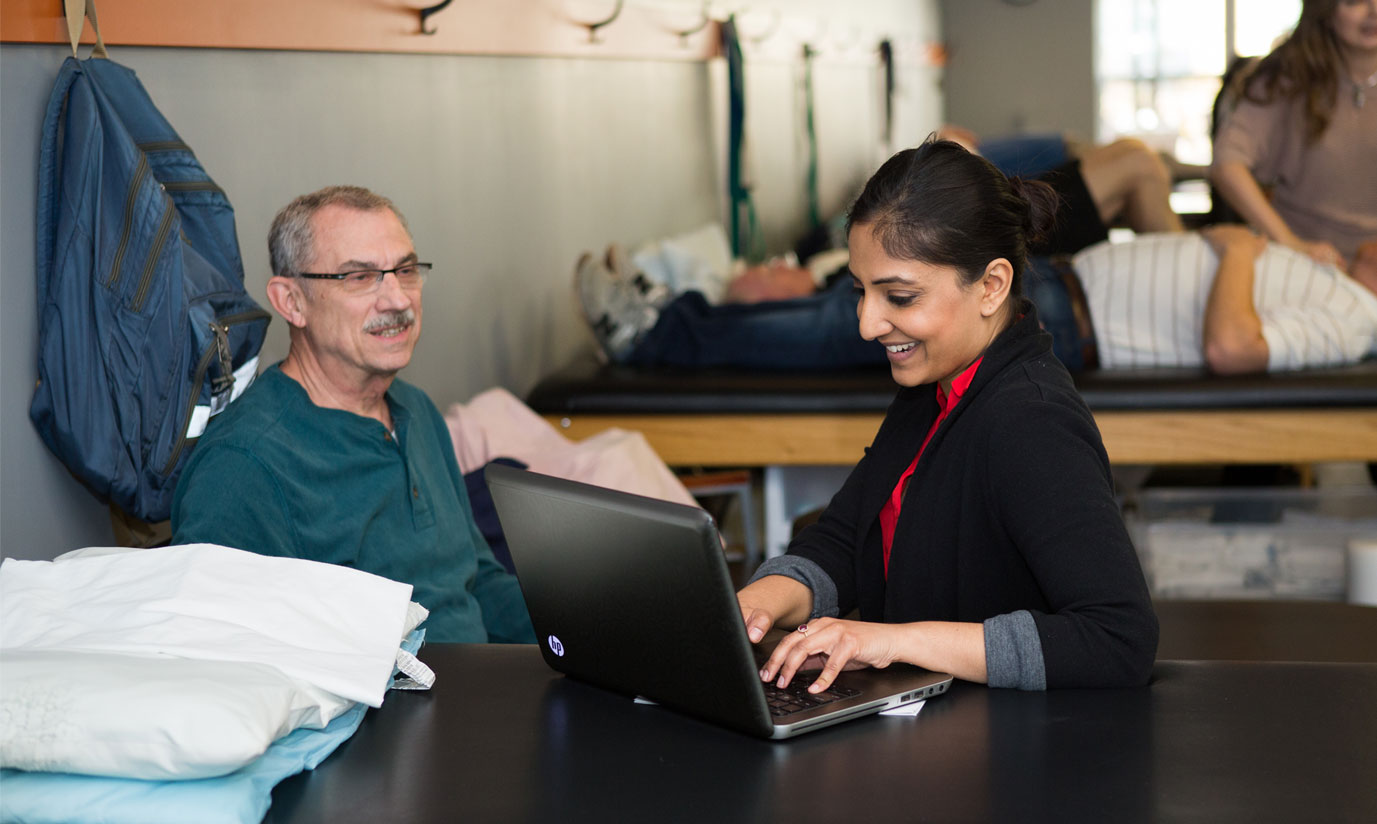
Course 1: Core Concepts in Professionalism and Ethics
This course is part of the Professionalism and Ethics in Physical Therapy: 4-Part Course Series. This course equips physical therapists with essential knowledge of professionalism and ethics.
- Module 1 explores how historical developments shape current ethical practices.
- Module 2 offers an overview of key ethical theories and examines how they have influenced the understanding of disability and the development of ableism in the field today.
- Module 3 provides physical therapy professionals with essential strategies and insights to assess and enhance well-being, fostering a healthy practice that promotes both personal and professional growth.
Join us to enhance your understanding of ethical principles and their application in practice!
0.5 CEU / 5 contact hours
Beth Linker
PT, PhD
Beth Linker, a former physical therapist turned historian, is the Samuel H. Preston Endowed Term Professor at the University of Pennsylvania. Renowned for her insightful works on rehabilitation and disability, her latest book, Slouch: Posture Panic in Modern America, delves into the historical fears surrounding poor posture in the 20th century.
Full Bio
Beth Linker, a former physical therapist, is the Samuel H. Preston Endowed Term Professor at the University of Pennsylvania in the Department of the History and Sociology of Science. She is the author of War’s Waste: Rehabilitation in World War I America (Chicago, 2011) and co-editor of Civil Disabilities: Citizenship, Membership, and Belonging (Penn Press, 2014). Her most recent book, Slouch: Posture Panic in Modern America (Princeton University Press, 2024), is a historical consideration of how poor posture became a feared pathology in the United States throughout much of the twentieth century. For this project, Linker received grants from The American Council of Learned Societies, The National Endowment for the Humanities, The National Institutes of Health, and The Robert Wood Johnson Foundation.
Sarah Caston
PT, DPT
Dr. Sarah Caston is physical therapist who is board- certified neurologic and geriatric PT. She is an Associate Professor within Emory University’s Division of Physical Therapy. Dr. Caston received her BS in Rehabilitation Science from University of Pittsburgh in 2008 and her DPT in 2011 from Emory University. She recently completed a Master’s degree in Bioethics and Emory’s Center for Ethics. Dr. Caston’s passion for ethics in physical therapy was cultivated as a clinician where she witnessed both the gifts and limitations of the biomedical approach to care, and grew at the intersections of humanism justice and a desire for greater flourishing for patients and clinicians.
Alyssa M Gibbons
Ph.D.
Alyssa Mitchell Gibbons, Ph.D., is an associate professor of industrial/organizational psychology at Colorado State University in Fort Collins, Colorado, USA. Dr. Gibbons’ research interests include safety culture, occupational health, and leadership development. Dr. Gibbons’ research has appeared in journals including Journal of Management, Journal of Occupational Health Psychology, Human Performance, Human Resource Management Review, International Journal of Selection and Assessment and Industrial/Organizational Psychology: Perspectives on Science and Practice. Dr. Gibbons received her doctorate in Industrial and Organizational Psychology from the University of Illinois at Urbana-Champaign.
Course Instructions
- Click on the Contents tab to watch the course recording.
- Click the Take Quiz button to complete the assessment. Learners will have 3 attempts to pass and must answer at least 70% of questions correctly.
- Click Fill Out Survey under the Evaluation listing to provide valuable course feedback. Scroll down on all questions as there may be answer options that expand past the size of the window.
- Click the View/Print Your Certificate button under the Certificate listing. You can view/print your certificate at any time by visiting the APTA Learning Center and clicking the CEU Certificate/Transcript link on the left-hand side of the page.
Need Assistance?
For assistance logging in, accessing activities, claiming credit, or for other questions or concerns, please e-mail learningcenter@apta.org.


